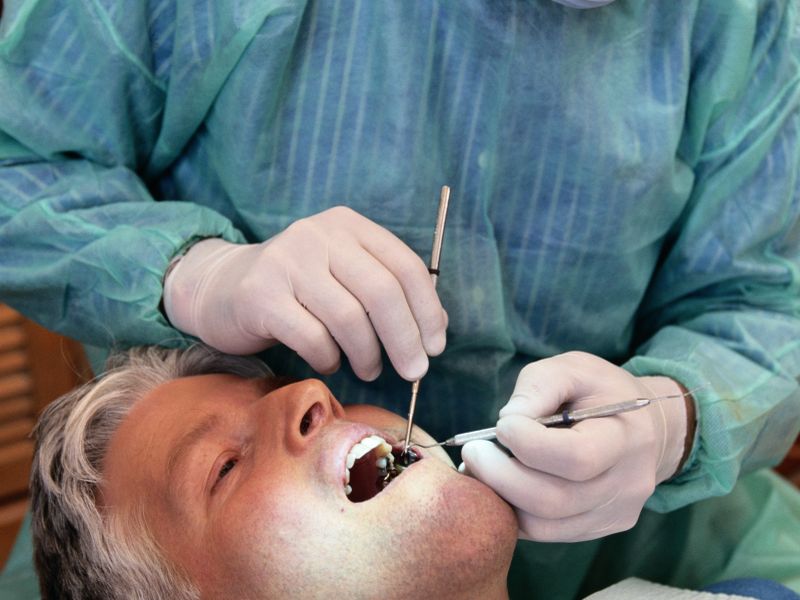
When you have a wisdom tooth removed, the pain should quickly recede from memory. But some people develop a painful complication known as dry socket.
Allowing the wound to heal undisturbed can help prevent dry socket, said Dr. Michael Ellis, an associate professor with Texas A&M College of Dentistry.
When a tooth is removed, a blood clot forms and fills the empty space for a few days. This helps protect the tooth socket as it heals, Ellis said.
If this clot is dislodged too soon, the bone and nerve can become dry and exposed, he explained.
“The blood clot is there to protect the wound,” Ellis said in a university news release. “If the clot is broken down prematurely, then the bone is exposed and the area becomes a ‘dry socket.’ ”
When someone has a dry socket, the first thing they’ll notice is pain. “The exposed bone is sensitive, and that is the source of pain, which can be dull or throbbing and even radiate up to the patient’s ear,” he said. “The pain can last anywhere from a few days to a week.”
Dry tooth socket can cause an odor or leave a bad taste in the mouth, Ellis added. He noted this shouldn’t be confused with an infection, which would involve other warning signs.
“There’s not a lot of swelling or fever with a dry socket,” Ellis said. “An infection can happen, but it’d be unrelated to the dry socket.”
After surgery to remove wisdom teeth, patients should receive information about how to prevent dry socket. Certain behaviors increase the risk for the condition, Ellis said, including:
- Drinking carbonated or warm beverages.
- Touching or disturbing the tooth socket as it heals.
- Using straws.
- Smoking.
Stress, certain medical conditions and some medications can contribute to premature breakdown of the clot. Women who are taking birth control pills may also be at slightly greater risk for dry socket, Ellis said.
If you do develop dry socket, there are ways to manage your discomfort, Ellis said.
“You want to clean the wound, irrigate it with saline and then dress the wound with medicated gauze,” he said. “Treating the wound doesn’t speed up the healing process: It just deals with the amount of discomfort that the patient is in. Whether you treat it or not, it will get better.”
However, anyone who develops uncontrolled bleeding, foul discharge, pain or fever after tooth removal should contact their surgeon right away, Ellis said.
More information
The American Dental Association provides more on dry socket.
Source: HealthDay

Leave a Reply